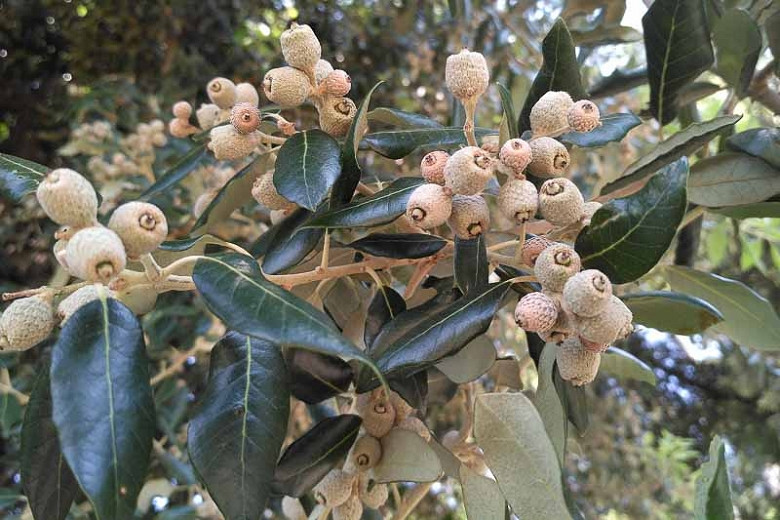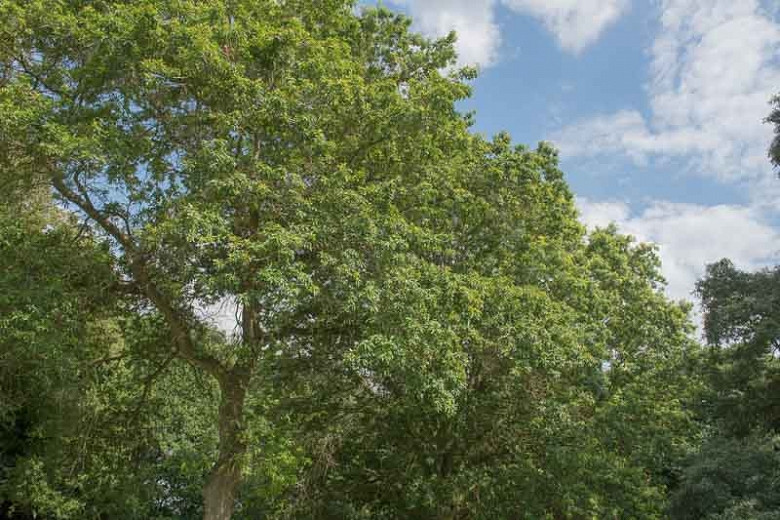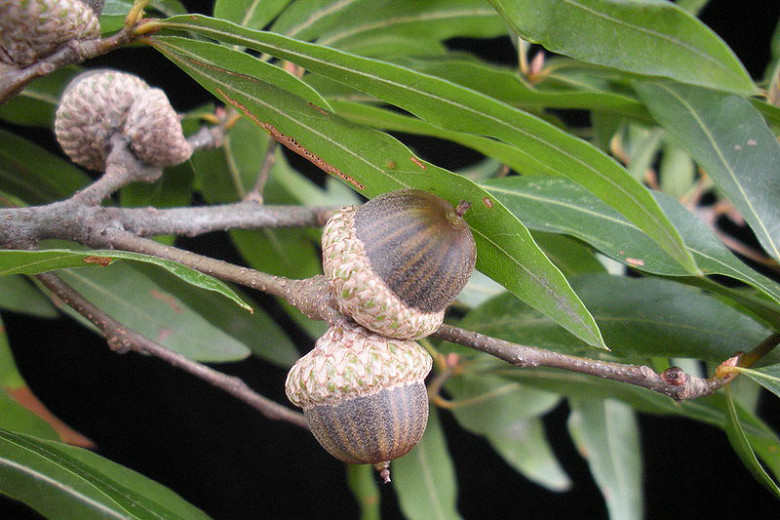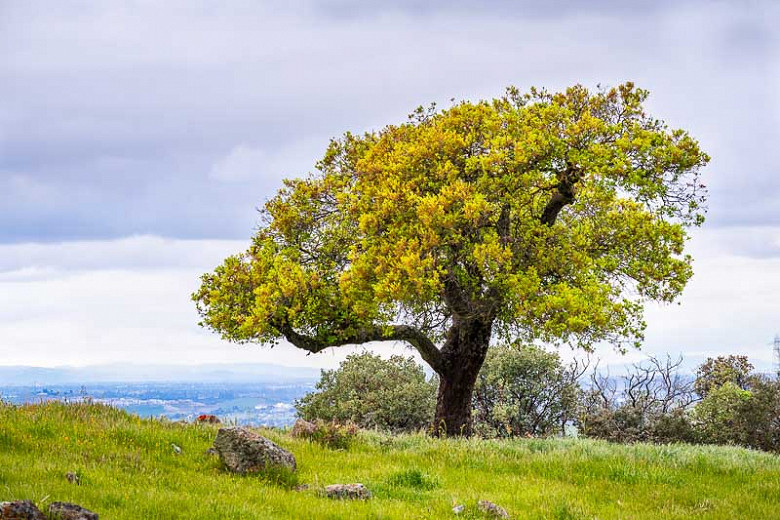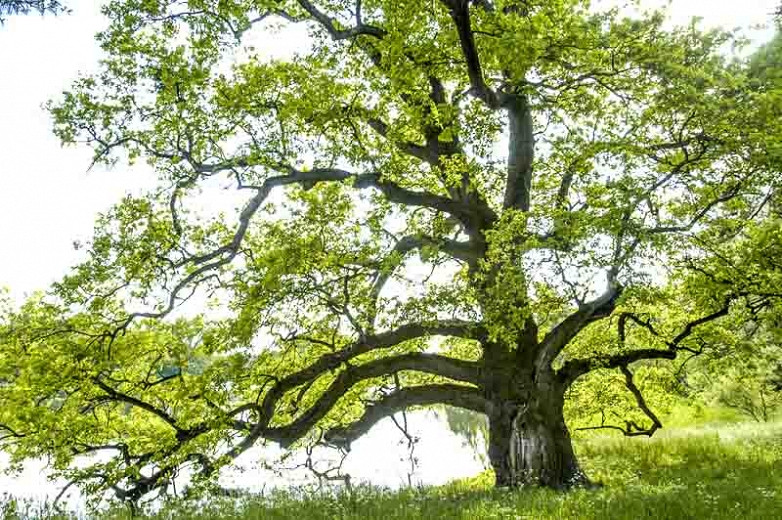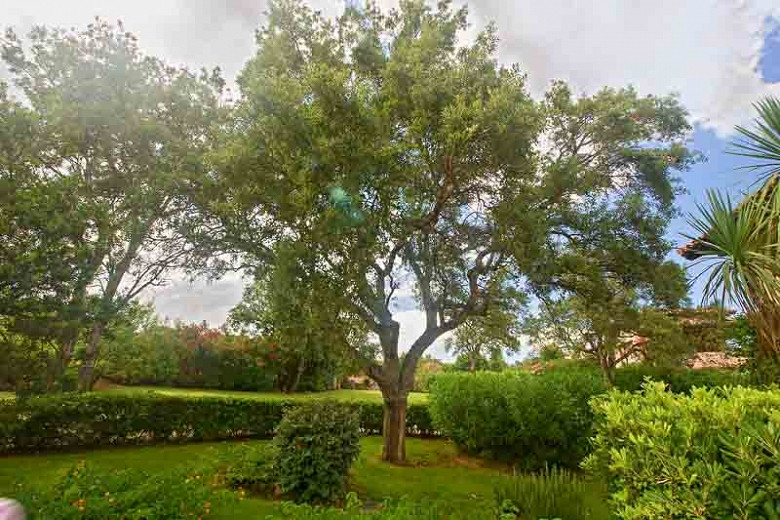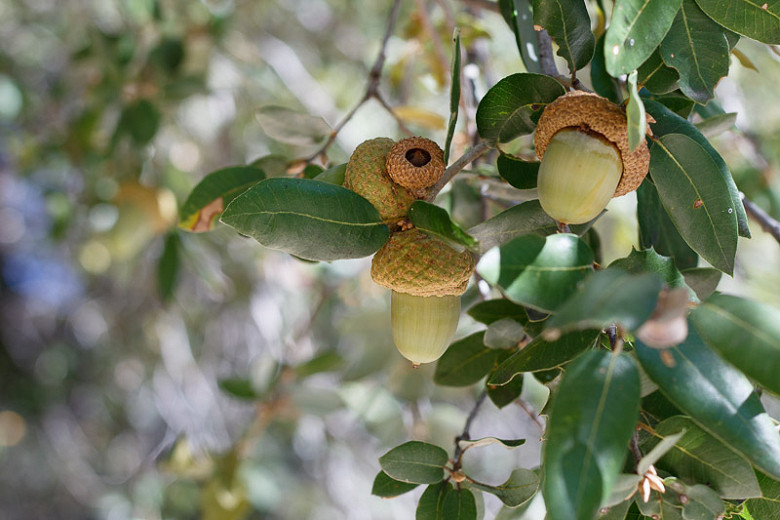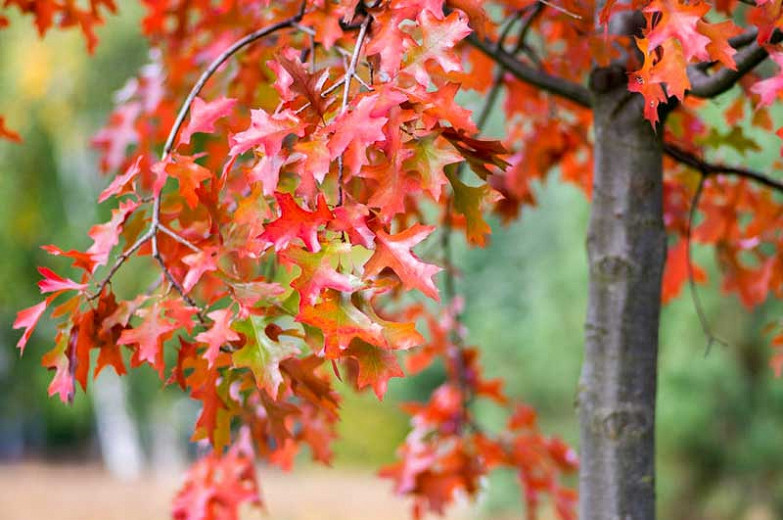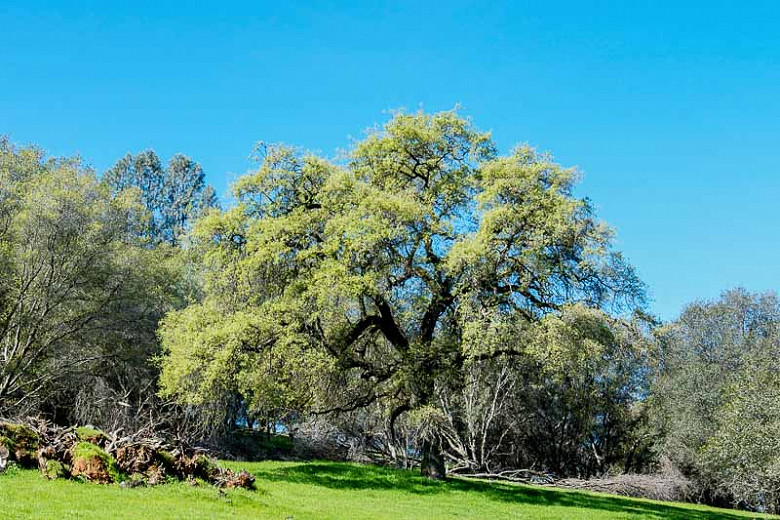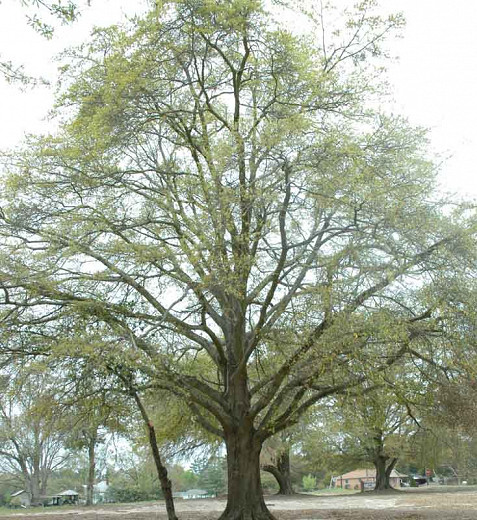Quercus imbricaria (Shingle Oak)
Quercus imbricaria (Shingle Oak) is a large deciduous tree of pyramidal habit in youth, eventually becoming rounded to broad-rounded with age. The foliage of narrow, oblong, lustrous dark green leaves is unlobed and turns yellow-brown to russet-red in the fall. Emerging tinged-red in spring, the leaves tend to persist throughout most of the winter, rustling as they are blown up into the air by a sudden gust of wind. Inconspicuous yellow-green catkins appear in spring as the leaves emerge. The trunk and spreading branches, with their brownish-gray bark and shallow furrows, provide architectural elegance and winter interest. Its oval acorns are a valuable source of food for small mammals and birds, but they do not ripen until fall of the second year. Shingle oak is relatively easy to transplant. An ornamental and shade tree, it is also suitable for hedges, screens, and windbreaks. It is regarded as a great choice for Western gardens.
- Grows up to 40-60 ft. tall and wide (12-18 m).
- A full sun lover, this tree is easily grown in rich, humusy, medium moisture, well-drained soils. Adaptable to a wide range of soil conditions including dry soils. Drought tolerant.
- Good pest resistance. Oaks are susceptible to oak wilt, chestnut blight, shoestring root rot, anthracnose, oak leaf blister, cankers, leaf spots and powdery mildew.
- Toxic to horses.
- Native to the eastern and central United States.
Requirements
| Hardiness | 5 – 8 |
|---|---|
| Heat Zones | 4 – 8 |
| Climate Zones | 2, 2A, 2B, 3, 3A, 3B, 4, 5, 6, 7, 8, 9, 10, 14, 15, 16, 18, 19, 20, 21 |
| Plant Type | Trees |
| Plant Family | Quercus – Oaks |
| Exposure | Full Sun |
| Season of Interest | Spring (Early,Mid,Late)Summer (Early,Mid,Late)FallWinter |
| Height | 40' – 60' (12m – 18m) |
| Spread | 40' – 60' (12m – 18m) |
| Water Needs | Low, Average |
| Maintenance | Low |
| Soil Type | Chalk, Clay, Loam, Sand |
| Soil pH | Acid, Alkaline, Neutral |
| Soil Drainage | Moist but Well-Drained, Well-Drained |
| Characteristics | Showy |
| Native Plants | United States, Midwest, Illinois, Indiana, Iowa, Kansas, Michigan, Missouri, Ohio, Northeast, Delaware, Massachusetts, Maryland, New Jersey, New York, Pennsylvania, Southeast, Alabama, Arkansas, Georgia, Kentucky, Louisiana, Mississippi, North Carolina, Tennessee, Virginia, West Virginia, Southwest, Oklahoma |
| Tolerance | Drought, Dry Soil |
| Garden Uses | Hedges and Screens |
| Garden Styles | Prairie and Meadow |
